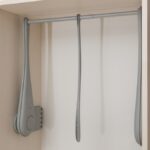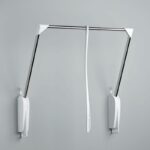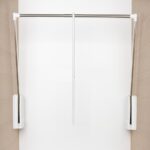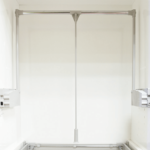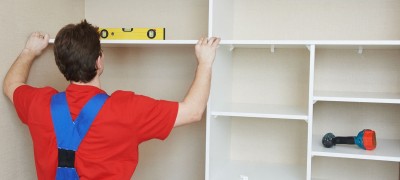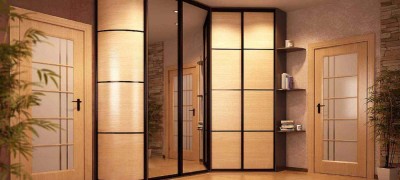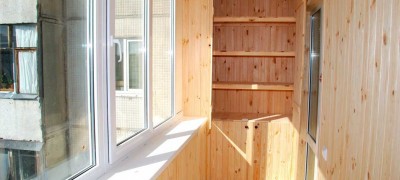What is a pantograph for a wardrobe
When buying new furniture, you should consider different nuances. The wardrobe should not only fit into the interior, but also be roomy enough. Clothes hanging neatly will help cut down on packing time. A convenient pantograph allows you to keep your closet tidy. It fits into a cabinet of any size and is easy to assemble. Today there are a large number of designs, you can always choose an option for a bedroom, living room, dressing room.
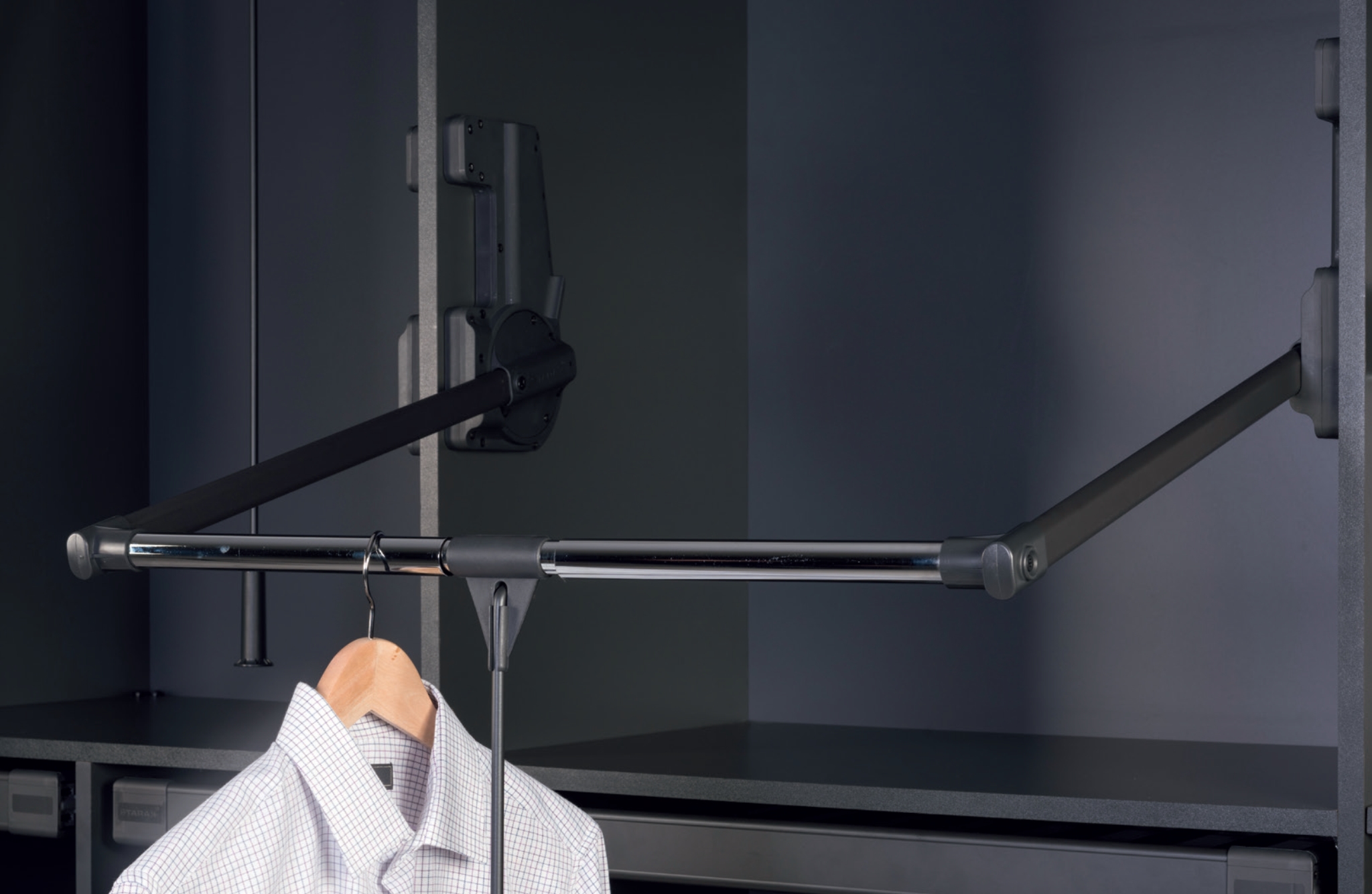
What is a pantograph for a wardrobe
Many do not know what a cabinet pantograph is. The pantograph is a special device for storing clothes in the under-ceiling part of the cabinet. The design saves space, simplifies the process of hanging and taking out clothes. The pantograph allows you to place 20-50% more things in the closet.
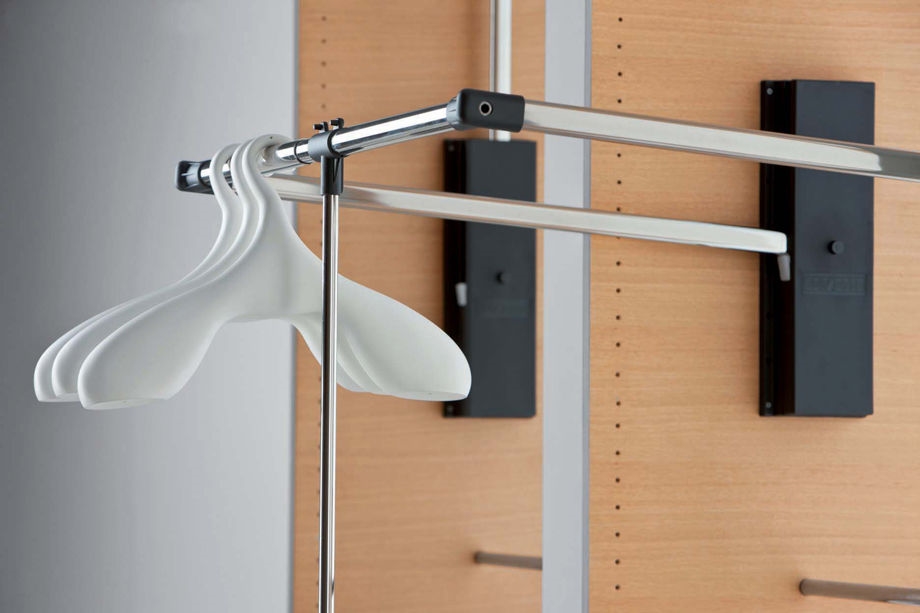
The pantograph allows for comfortable placement of dresses, suits and shirts at the top. Below there are shelves with other things that do not require special care. These can be bags, underwear, accessories, shoes, etc. The device is ideal for small apartments in which there is always a lack of space.
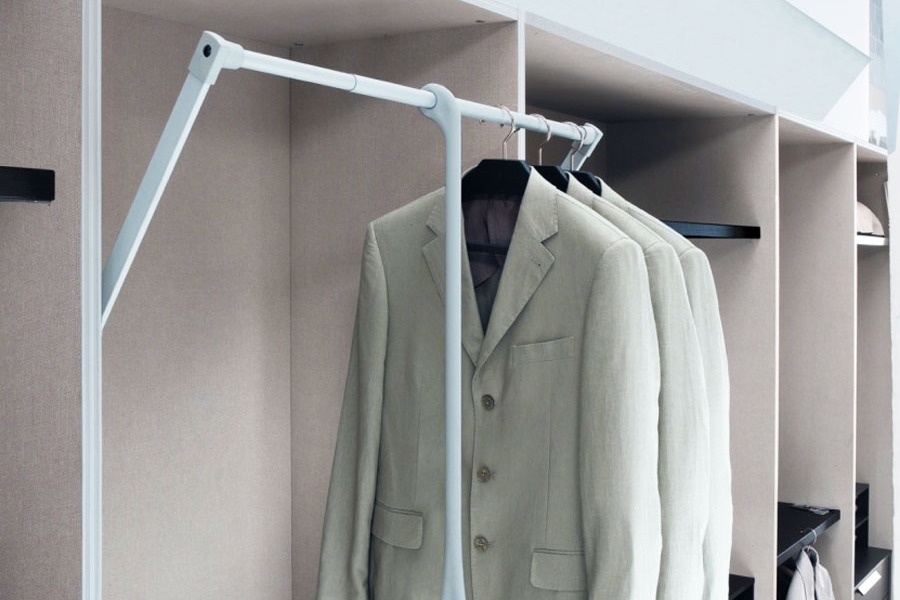
Lever design is functional, easy to operate. Pantographs in a wardrobe appeared on the market relatively recently, but they have already become widespread. Installation of a structure can increase the comfort of life, which is why many people prefer such equipment.
Features and working principle
The design of the pantograph is not complicated. The service life depends on the quality of the materials used and the processing of the parts. When choosing, one should give preference to trusted manufacturers, saving in this case is impractical. Cheap models often break down after a couple of months; repairs take a lot of time and effort. In most cases, it is cheaper to buy a new mechanism than to repair an old one.
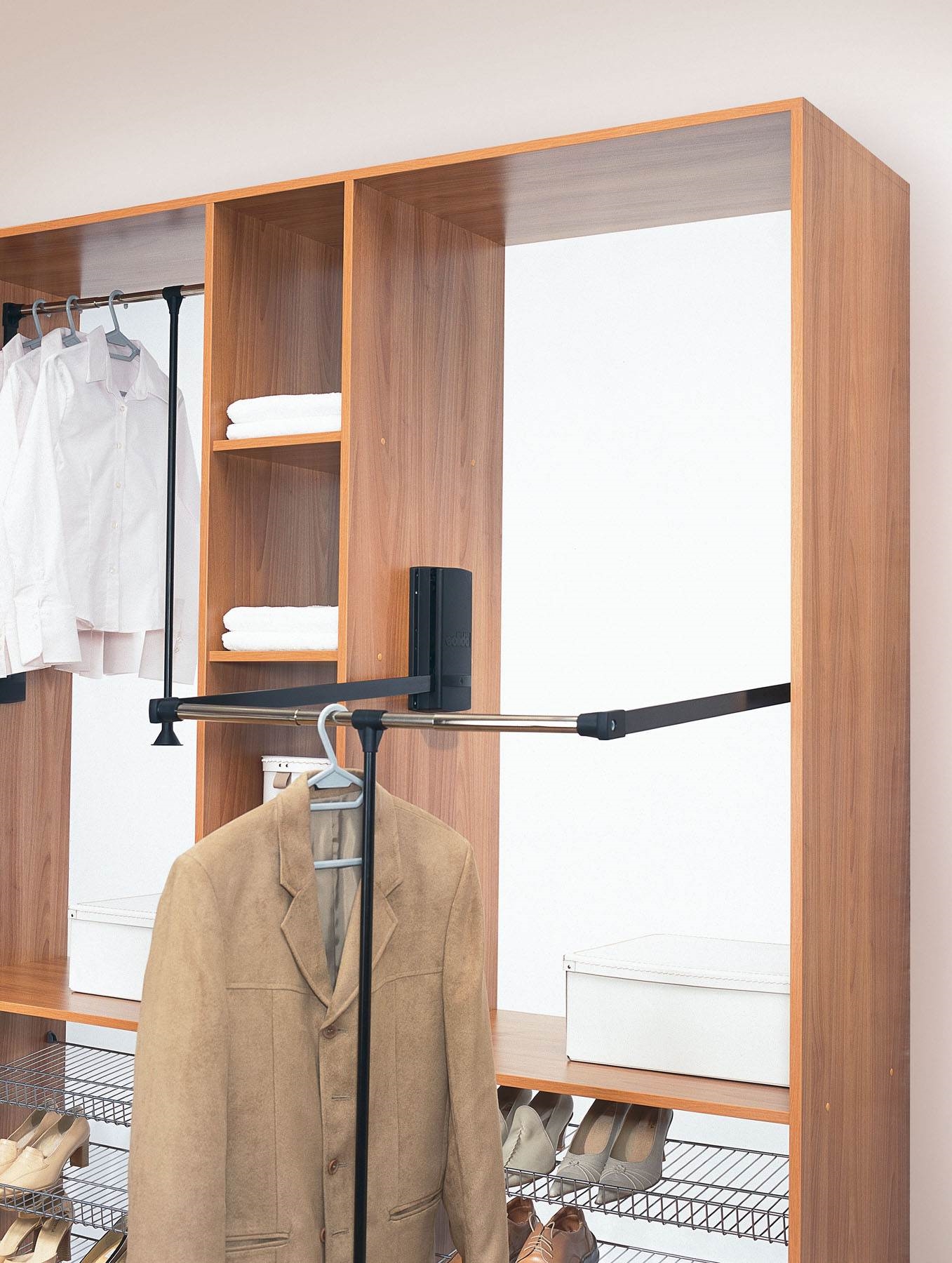
The device consists of the following elements:
- levers - load-bearing elements for manipulating the bar;
- lifting mechanism - a complex system that sets the entire structure in motion;
- bar - telescopic handle with the ability to change the length, designed for hanging clothes;
- handle - designed to control the pantograph.
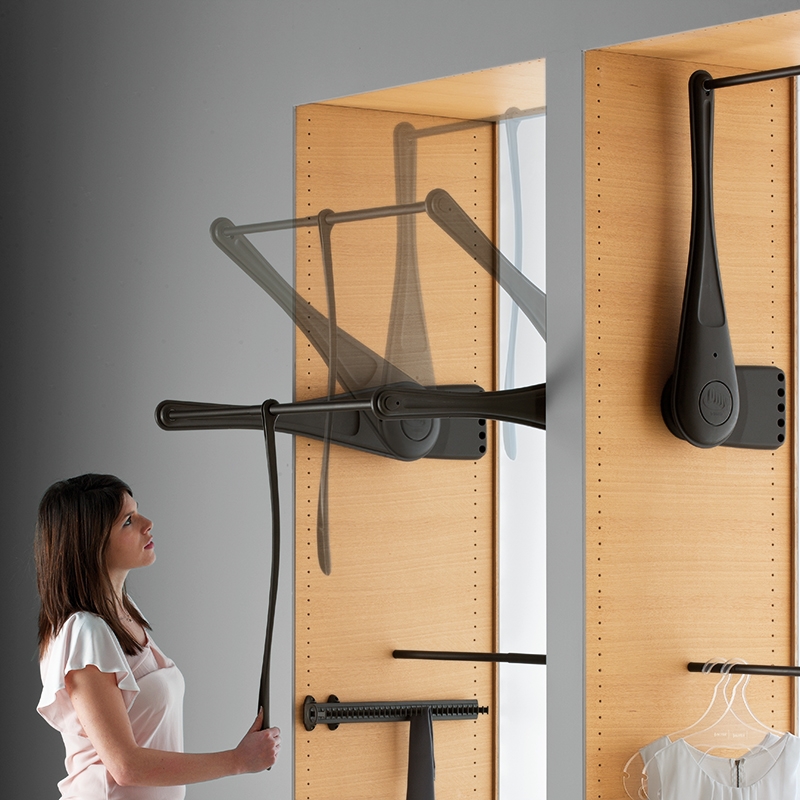
The brackets are fixed to the walls of the wardrobe, the height depends on the length of the handle of the structure. The distance from the ceiling of the wardrobe to the end of the handle should be 3-5 mm. The handle is easy to put on, the plastic moldings snap into the “ears” of the bracket. The telescopic tube is fixed to the arm of the bracket with screws.
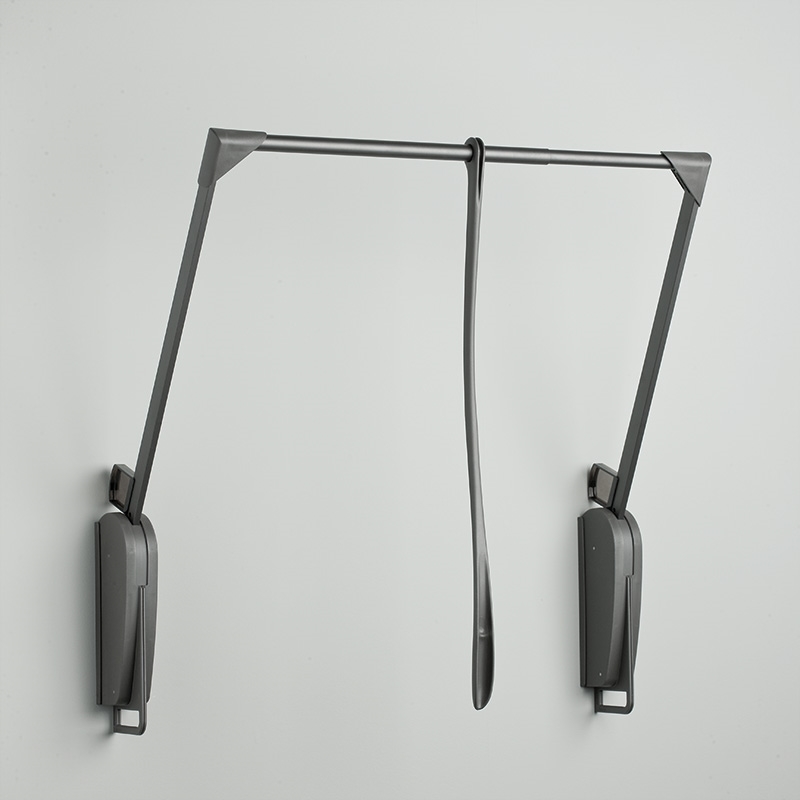
Pantographs with mechanical and electrical levers are on sale.A wardrobe lift works on the same principle, but its installation takes more time and effort. A mechanical pantograph can be installed on its own, installing a model with an electric drive requires professional knowledge.
The furniture pantograph can withstand a load of up to 20 kg. The manufacturer always indicates the maximum weight. The length of the device is 45-125 cm. The longer the structure, the more weight it can bear.
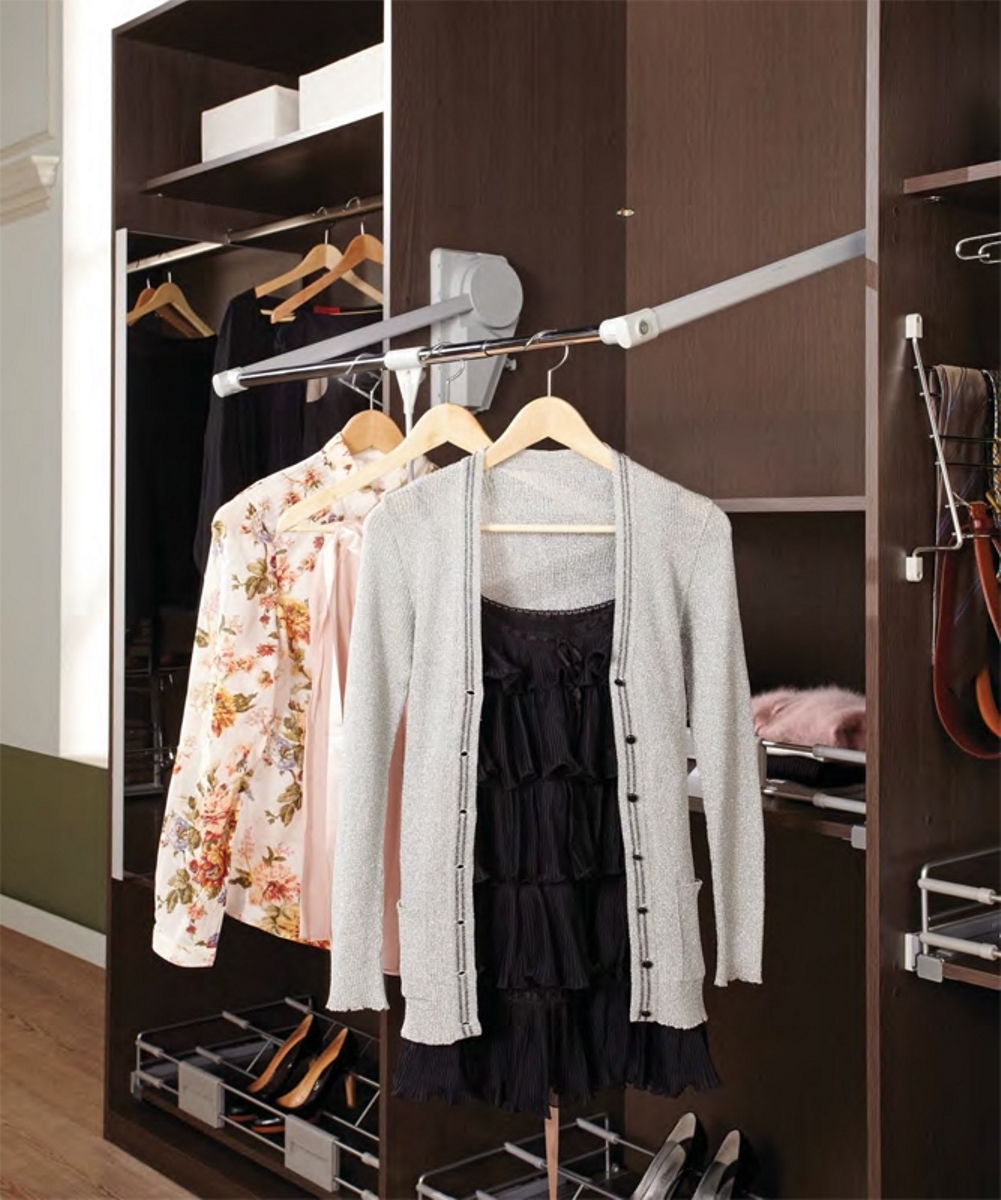
The springs are considered the most vulnerable part of the structure, due to which the levers are lowered and raised. Malfunctions occur most often from overloads or strong jerks. Good manufacturers use quality springs that are designed for years of use. Compliance with operating rules plays an important role.
Advantages and disadvantages
The installation of the linkage significantly increases the comfort in everyday life. Elderly people, patients with disabilities can deliver and hang clothes on their own.
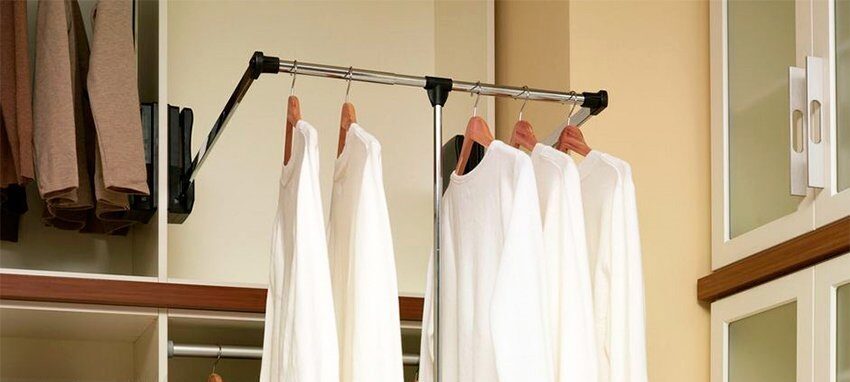
Advantages of the pantograph:
- speeding up and simplifying the manipulation of things in the closet;
- improved ventilation, things stay fresh;
- freeing up space at the bottom of the cabinet;
- reduction of ironing time.
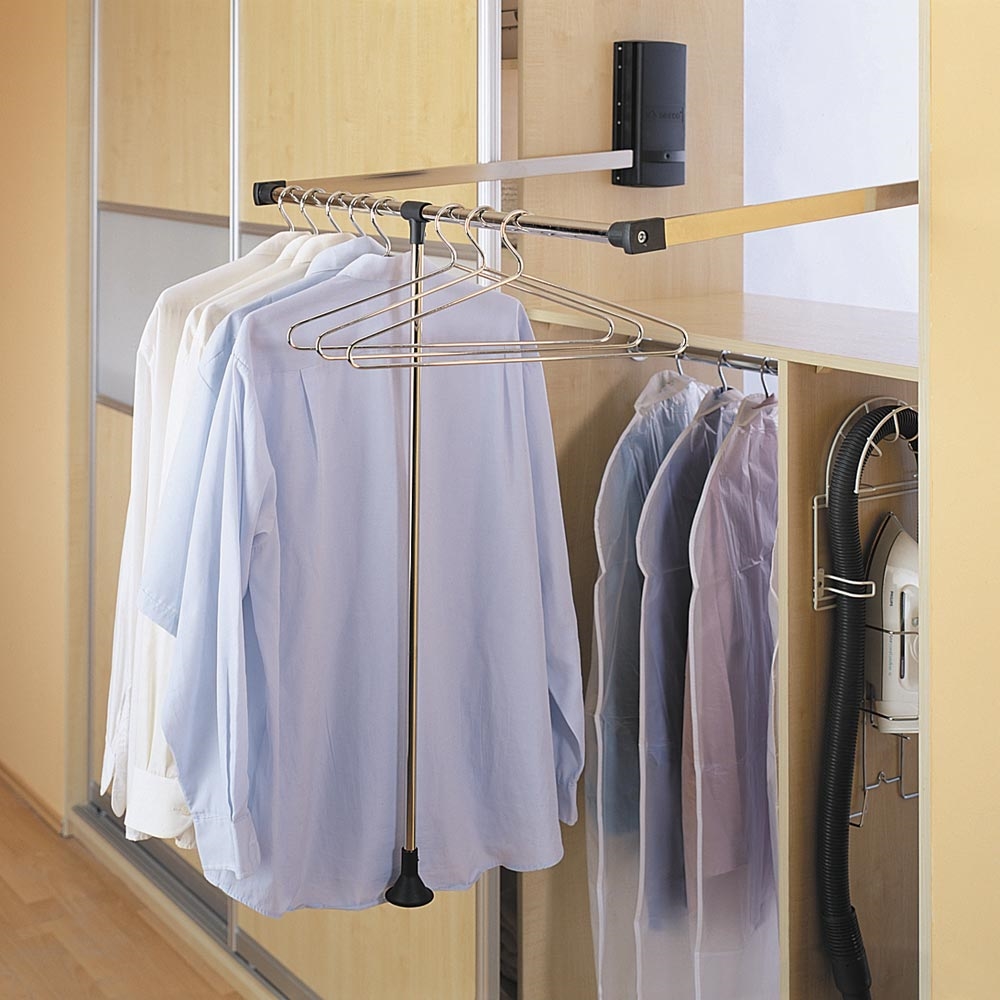
The main disadvantage of the pantograph is considered to be relatively quick wear. Mechanism malfunctions occur on average after 3-4 years. The main reason is the formation of backlash between individual structural elements.
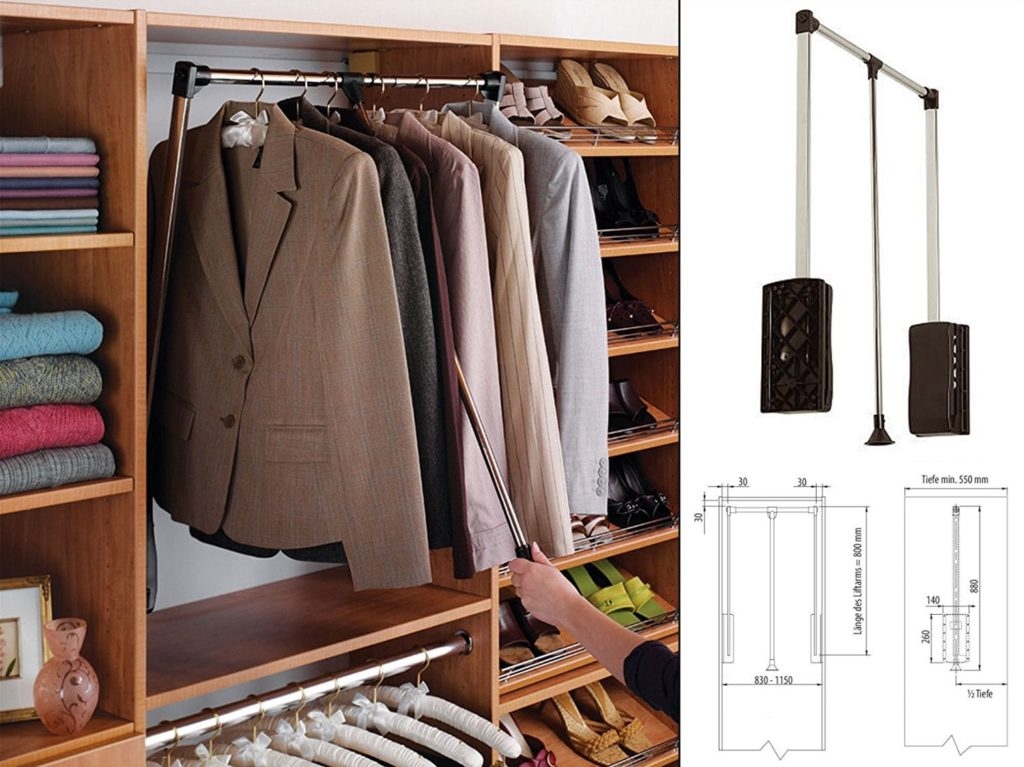
The disadvantages include creaking. Extraneous sounds can turn into a real problem if the closet is located in the dormitory. The cost of a pantograph often exceeds the price of a conventional crossbar, so it should also be considered a disadvantage.
How to choose the right one
Mechanical models are sold in stores, their cost starts from 2,000 rubles. A pantograph with an electric drive will cost an order of magnitude higher even with similar technical characteristics of the models.
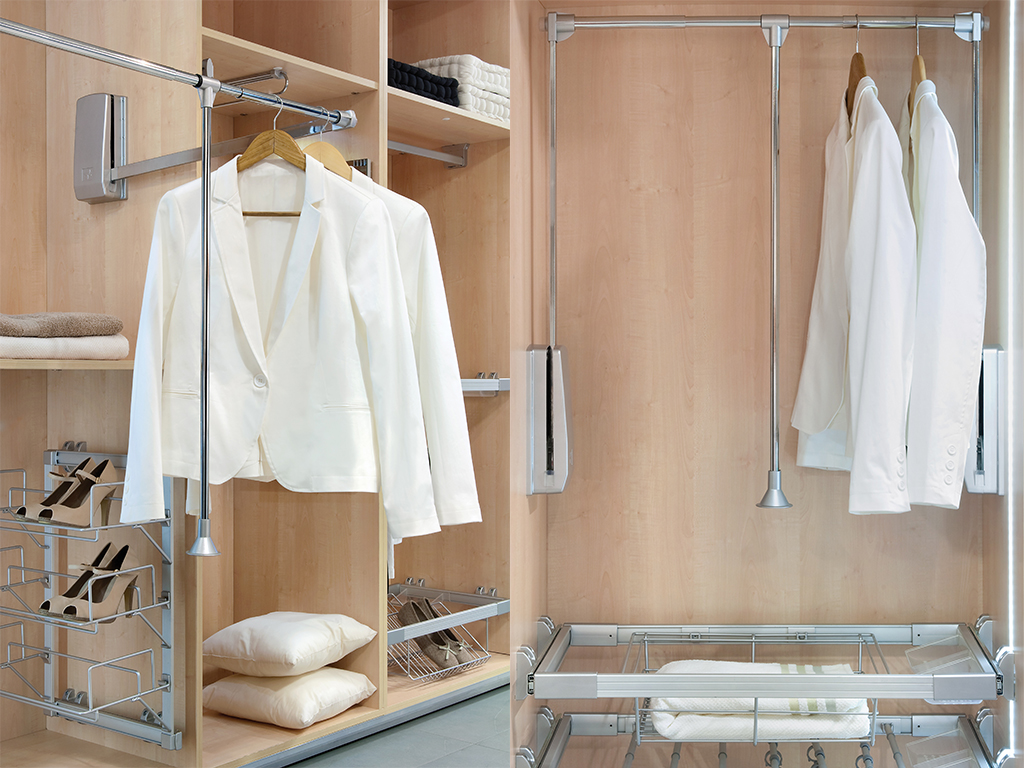
When choosing, you should pay attention to the following parameters:
- material of manufacture - steel is durable, aluminum wears out quickly, high-strength plastic must withstand loads;
- carrying capacity - the average weight of the clothes must be taken into account, it should not exceed the carrying capacity of the mechanism, the optimal parameter is 12, 15, 18 kg;
- type of lifting mechanism - gas and hydraulic ones surpass spring counterparts in performance;
- manufacturer - Chinese models are cheaper, inexpensive pantographs creak, are unstable, it is best to give preference to SERVETTO, VIBO, AMBOS brands;
- bar dimensions - when choosing, you should be guided by the width of the cabinet department, the bar should be located between the walls, do not swing the doors;
- type of control - models with an electric drive are considered more convenient;
- manufacturer's warranty - the longer the warranty period, the higher the quality.
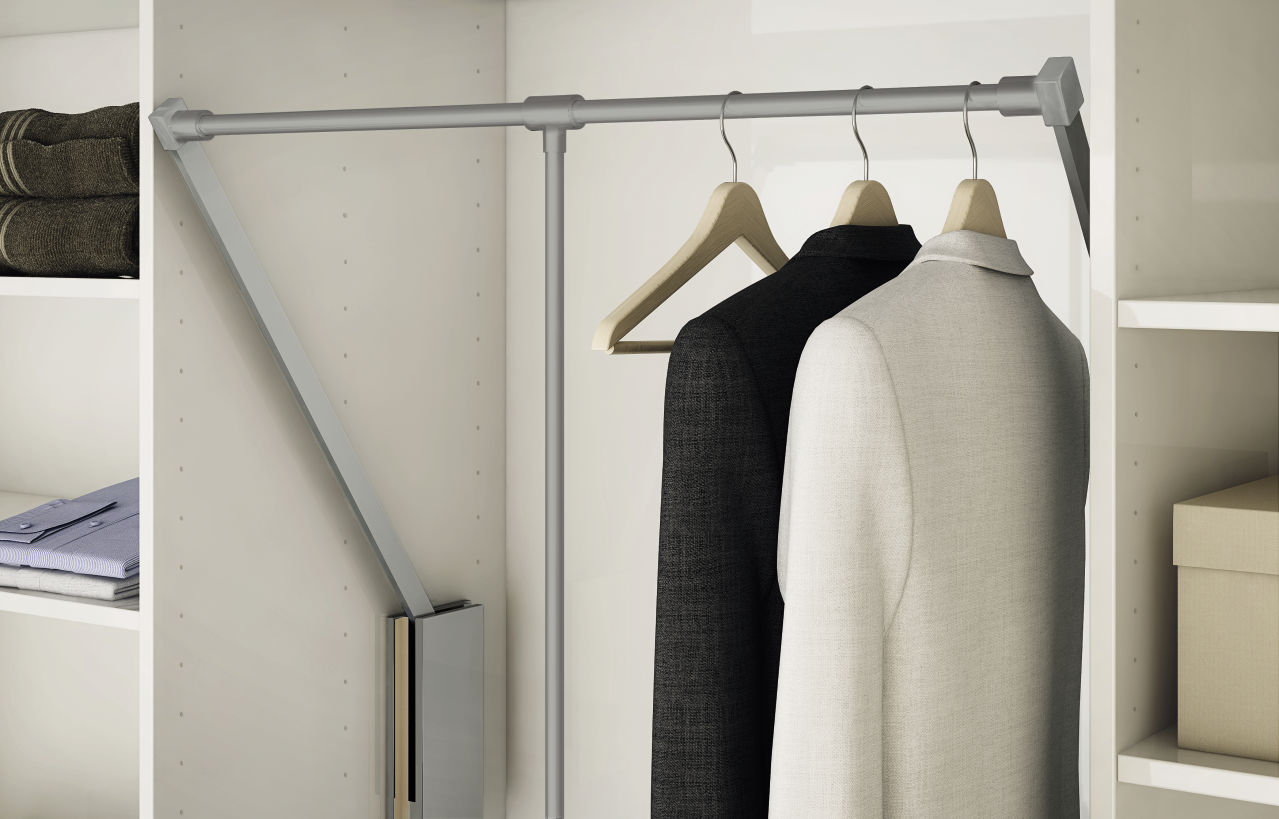
Varieties of pantographs and their characteristics
All pantographs protect things from crushing, keep things tidy.
Mechanical
Mechanical ones operate on the principle of a multi-stage switch. The levers stop in two positions, some models have intermediate ones. To return the hanger to its place, the rod must be moved to a different position.
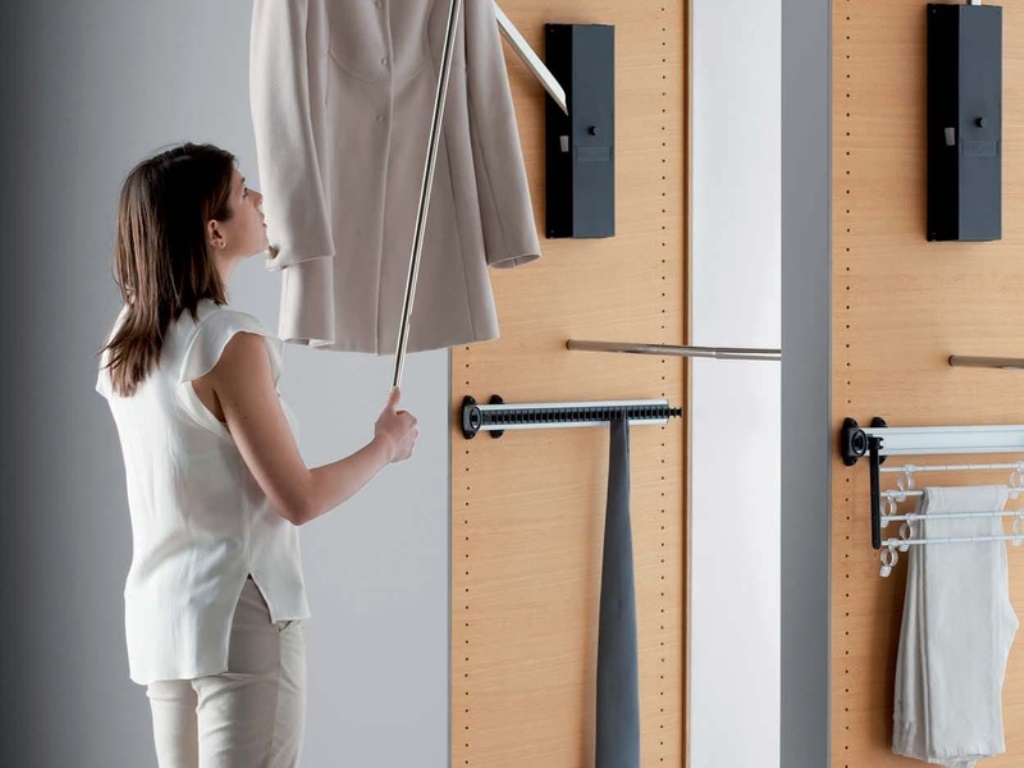
Electrical
Control is carried out using a special button. Electropantographs differ little from mechanical ones. It all depends on the specific model. The carrying capacity of such models does not exceed 20 kg. It is recommended to install the electropantograph in the children's room. The device is also useful for the elderly. The average cost of such a model is 7 thousand rubles, which is not cheap.
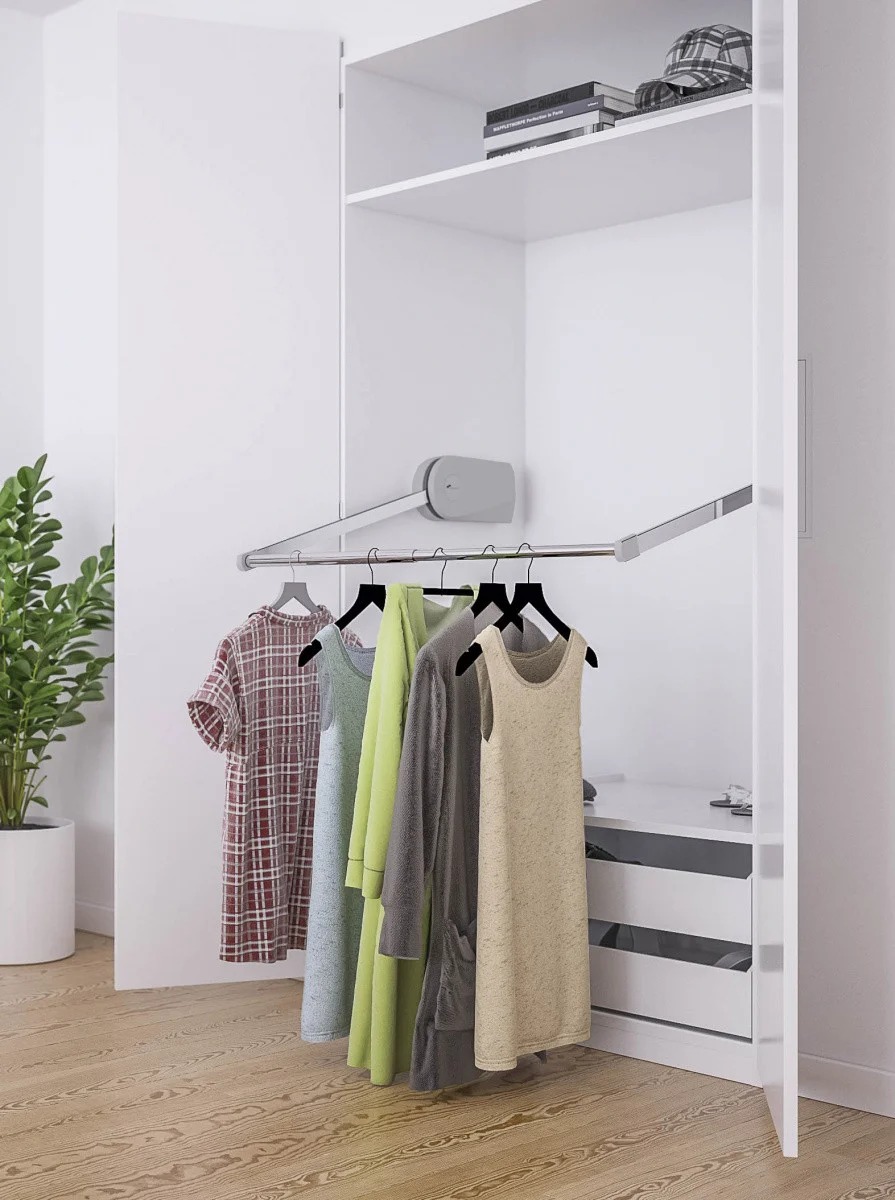
Installation and operation rules
Installation of the pantograph is carried out on the side of the cabinet, on the chipboard. Before installation, you should worry about self-tapping screws in advance. Their length should not exceed 16 mm. The kit often includes screws that are slightly longer. They can go through the wall of the closet, which looks unaesthetic.
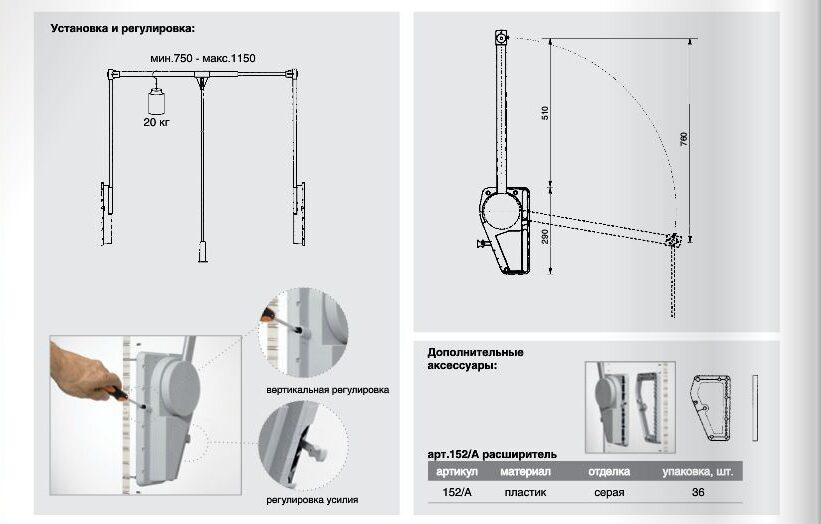
Some models mount directly to the wall. They are designed for walk-in closets.
Stages of installing a pantograph with an electric drive, which is turned on by a button:
- unpack, check how it works, connect to the network;
- measure the distance from the outlet, it should be enough to connect the device;
- take clothes out of the compartment, try on the mechanism, make notes for the installation of fasteners (in the absence of documentation, measurements are carried out manually);
- drill holes at the attachment points;
- install the frame in the grooves.
The pantograph will work immediately after connecting to the network. Control is carried out using a button or pedal. The hanger goes up and down in just a couple of seconds after being pressed.
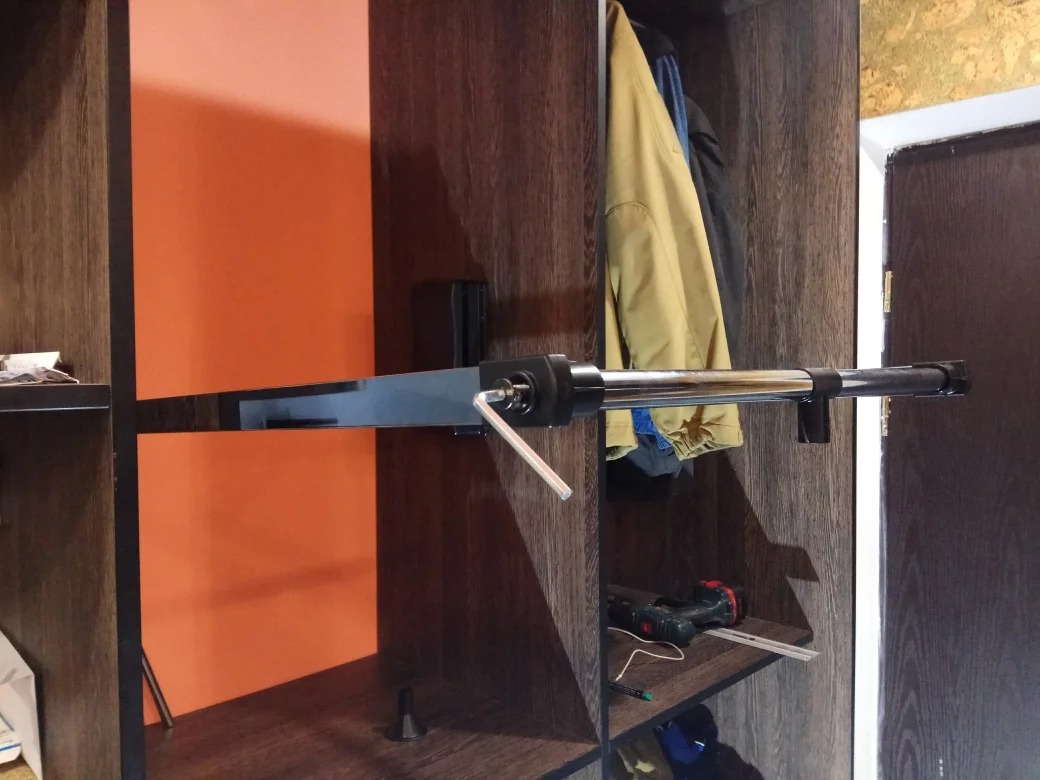
Mechanical pantographs are installed in a similar way. The only difference is that there is no need to connect the mechanism to an outlet.
Maximum loads should be avoided during operation. The mechanism wears out quickly, so sudden movements should be avoided. When lifting up an empty pantograph, the handle must be held by hand, which will avoid the inertial movement of the structure before cutting into the wall. The presence of clothing will slow down the sudden movement of the mechanism, the handle will also slow down on the clothing. The mechanism does not require special maintenance; careful operation will help to avoid malfunctions.
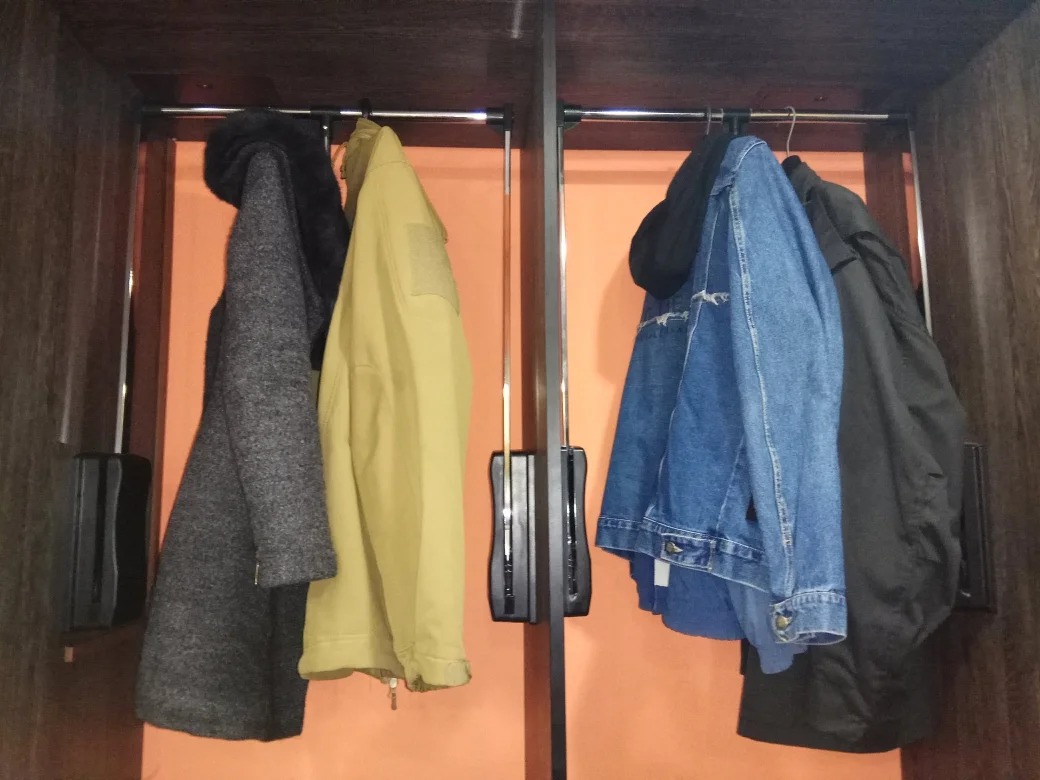
Video: how to install a pantograph in a wardrobe
